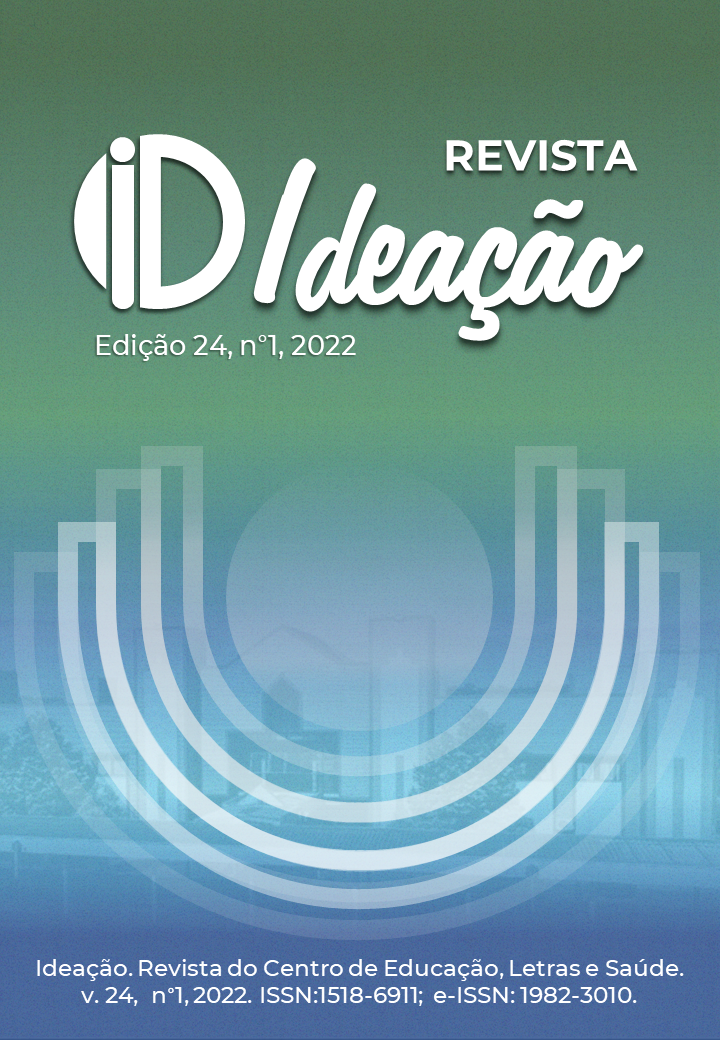Bilinguismo e inclusão: uma reflexão sobre os alunos surdos na rede regular de ensino
DOI:
https://doi.org/10.48075/ri.v24i1.27162Palavras-chave:
Educação, Bilinguismo, InclusãoResumo
O presente texto, sobre o Bilinguismo e a educação de surdos, na perspectiva da inclusão dos surdos na rede regular de ensino, tem como pano de fundo estudos e discussões realizados ao longo de um curso de especialização em Letras-Libras. Caracterizado como bibliográfico de abordagem qualitativa, esse estudo objetivou refletir sobre as contribuições do bilinguismo para a inclusão escolar de crianças surdas; apresentar aspectos alguns legais da inclusão do surdo na educação escolar; discutir sobre elementos da cultura e identidade surda, e, por fim, refletir sobre o bilinguismo como ferramenta / estratégia positiva para a inclusão escolar. Os resultados apontam que trabalhar numa perspectiva inclusiva requer esforço conjunto de todos os atores educacionais, uma vez que é necessário pensar, de forma coletiva numa perspectiva de educação bilingue, na qual o aprendizado de outra língua não seja benéfico apenas ao surdo. Aos ouvintes, aprender Libras também possibilita o fortalecimento das estruturas linguísticas, ou seja, vai favorecer o desenvolvimento cognitivo e ampliar os horizontes das crianças, incentivando o pensamento criativo e permitindo um acesso maior à comunicação.
Downloads
Publicado
Como Citar
Edição
Seção
Licença
Copyright (c) 2022 Direitos partilhados conforme licença CC BY-NC-SA 4.0

Este trabalho está licenciado sob uma licença Creative Commons Attribution-NonCommercial-ShareAlike 4.0 International License.
Política para Periódicos de Acesso Livre
Autores que publicam nesta revista concordam com os seguintes termos:
1. Autores mantém os direitos autorais e concedem à revista o direito de primeira publicação, com o trabalho simultaneamente licenciado sob a Licença Creative Commons Attribution que permite o compartilhamento do trabalho com reconhecimento da autoria e publicação inicial nesta revista.
2. Autores têm autorização para assumir contratos adicionais separadamente, para distribuição não-exclusiva da versão do trabalho publicada nesta revista (ex.: publicar em repositório institucional ou como capítulo de livro), com reconhecimento de autoria e publicação inicial nesta revista.
3. Autores têm permissão e são estimulados a publicar e distribuir seu trabalho online (ex.: em repositórios institucionais ou na sua página pessoal) a qualquer ponto antes ou durante o processo editorial, já que isso pode gerar alterações produtivas, bem como aumentar o impacto e a citação do trabalho publicado (Veja O Efeito do Acesso Livre).
Licença Creative Commons
Esta obra está licenciada com uma Licença Creative Commons Atribuição-NãoComercial-CompartilhaIgual 4.0 Internacional, o que permite compartilhar, copiar, distribuir, exibir, reproduzir, a totalidade ou partes desde que não tenha objetivo comercial e sejam citados os autores e a fonte.


